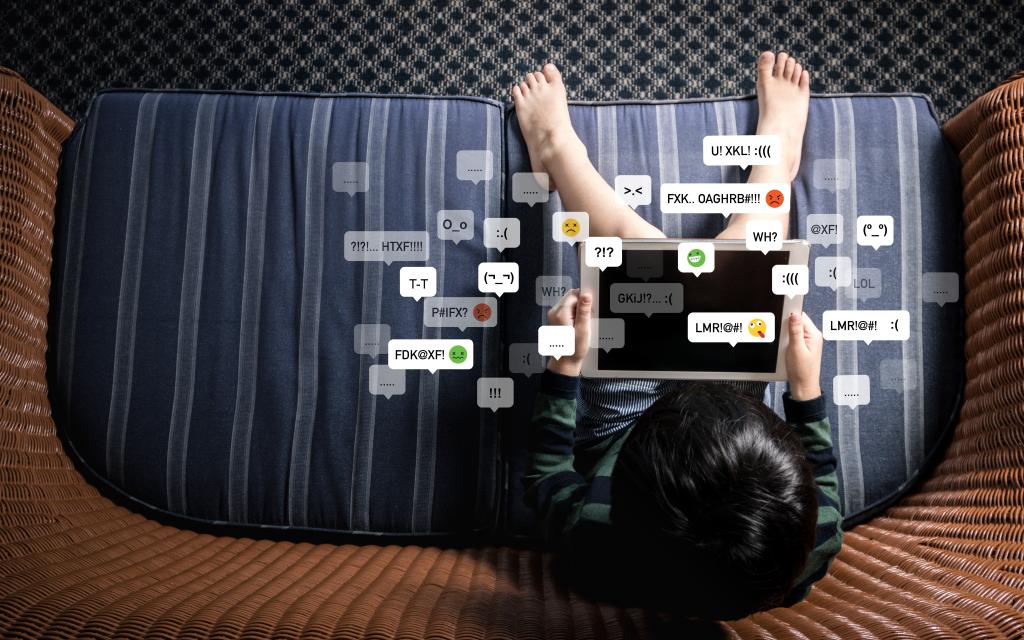Instagram likes, missed calls, unread emails — the pings of texts, apps and even work communications are wreaking havoc on our minds.
While the addictive dopamine hit of online validation may feel exhilarating in the moment, experts warn that incessant notifications can result in poor mental health.
“The delineation between work and leisure life doesn’t exist anymore,” Adelphi University professor and “Living with Depression” author Deborach Serani told Yahoo Life. “And the ability to reach out and get things in seconds interrupts the developing skills of patience and endurance.”
Adults spend about half their lives staring at screens, reports estimate, and the average American checks their phones an estimated 144 times per day.
“In today’s era, we have pings coming from multiple places, including phone calls, text messages and direct messaging from a variety of apps and social media platforms,” said Dr. Jacques Ambrose, a neuro-interventional psychiatrist and senior medical director at NewYork-Presbyterian/Columbia University Irvine Medical Center.
Constant notifications, Ambrose explained, can trigger the body’s stress response and release cortisol, the stress hormone.
In fact, the perpetual ping of apps and messages can result in imaginary notifications — such as a phantom vibration in your pocket — a symptom of “ringxiety,” Serani said.
Ironically, those pesky notifications can also stimulate the brain’s reward system and have subsequently conditioned users to feel excited when their phone rings due to a dopamine surge, even if the text or tweet is lackluster.
“Research suggests dopamine levels in the brain can be twice as high when you anticipate the reward as when you actually receive it,” Serani said.
“In other words, just hearing the notification can be more pleasurable than the text, email or tweet.”
Some estimates place average push notifications per day at about 50, while a recent study reported that teens are disproportionately screen-obsessed, tallying a daily estimate of 237 notifications and as many as 5,000 within a 24-hour time period.
Prior to the conception of the smartphone, there were landlines — now an archaic vehicle of communication — and while the average person may be interrupted by a call, instantaneous communication wasn’t readily available at our fingertips.
Then, came inventions like the iPhone — “an iPod, a phone, and an Internet communicator” all in “one device,” Apple founder Steve Jobs famously once said — that upended the way people connect.
Now, the constant buzz is commonplace.
Thus, the addictive nature of the internet compels us to stay logged on and tuned in lest we suffer from withdrawals — or, FOMO, the fear of missing out. Seemingly, we can’t live with it, can’t live without it.
But even just temporarily unplugging can provide some mental relief, experts say.
Limiting job-related messaging to work hours, or even using separate devices entirely, can prevent work from coming home with you, and vice versa, Ambrose suggested.
Setting phones to “Do Not Disturb” can also allow for better focus for those who are especially distracted by their phone screens illuminating with messages.
Powering down devices during meals and before bed can allow relaxation, Serani recommended, as can storing them away to reduce the ease of access — out of sight, out of mind.
Deleting unused apps, taking a technology cleanse and being less accessible to others can help users live “in the moment.”
Some screen-obsessed users have introduced website-blocking applications that limit notifications or lock sites entirely for a set period of time, helping easily distracted folks focus.
“I think it’s incredibly hard by willpower alone to have a smartphone and not waste a significant amount of time on it,” London-based author and attorney Susie Alegre, who uses the app Freedom, previously told the BBC.
The trend has slowly gained traction as #MonkMode online, as internet users participate in a tech detox, which experts believe is a symptom of technological development.
“We’re going to see exponential growth of apps vying for your attention,” said Vladimir Druts, the co-founder of FocusMe. “Monk mode is definitely going to be gaining steam.”
Source




